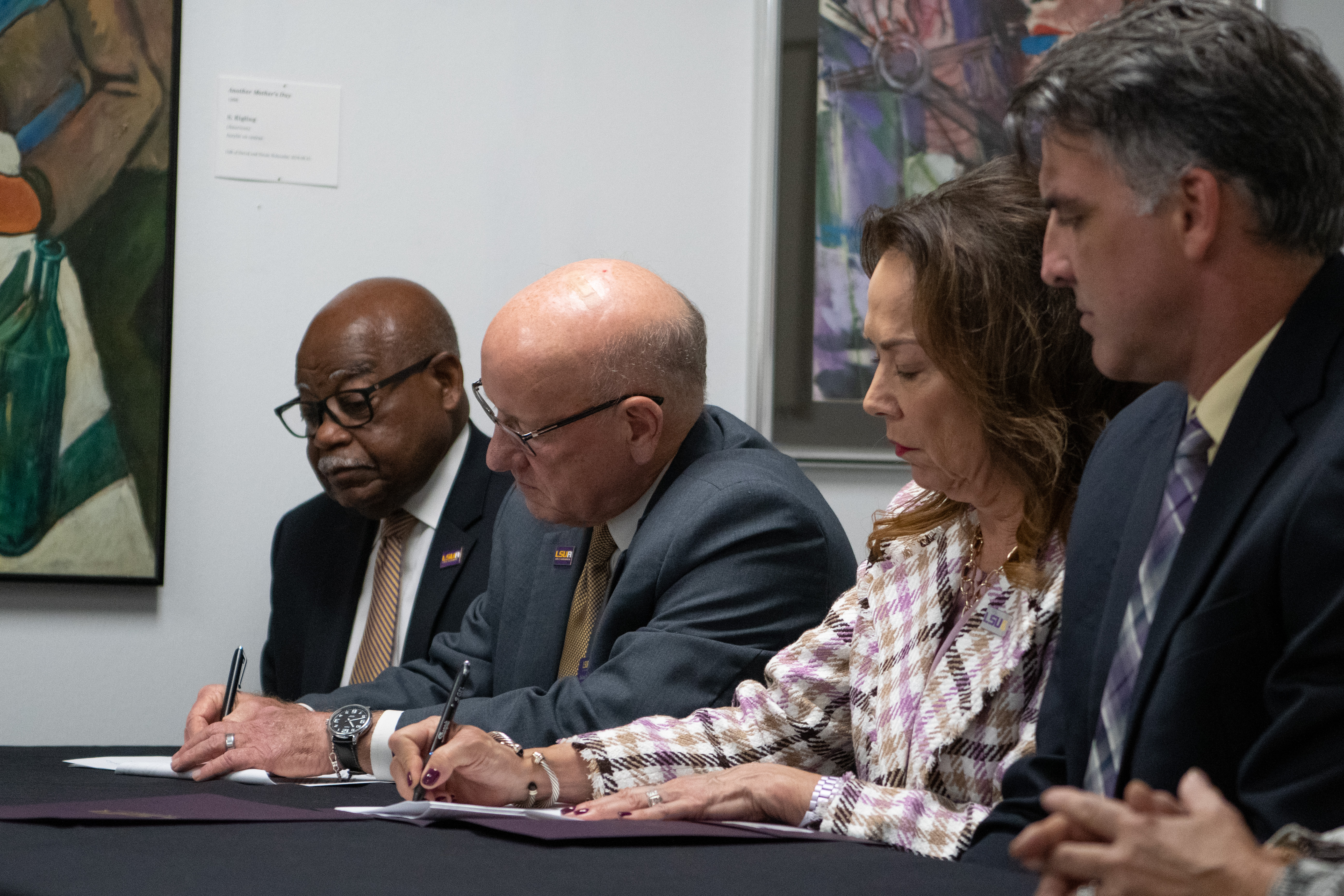Physical Sciences
Physical Sciences
The Associate of Science - Physical Science Louisiana Transfer offers a flexible and interdisciplinary approach towards understanding the physical world. Majoring in Natural Sciences will prepare students for entry-level science positions. The program also provides a great basis for students who would like to transfer to a bachelor program at another university.
Students in the Physical Science major will choose a sequence in either physics or chemistry to be completed with the associated labs. Advisors, and the university catalogs and links on the articulation web site (Louisiana Transfer Degrees) can provide more guidance on specific course recommendations depending on the student’s area of interest and anticipated baccalaureate major.
Academic Area
Science Building 207
337-550-1233
Format
The courses and degree are available both in-person and hybrid formats.
About the Associate of Arts Louisiana Transfer in Physical Sciences
What You'll Accomplish
Through your coursework, you will:
- Earn an Associate of Science degree with a significant general education core, designed to also to serve as preparatory education for transfer to a related baccalaureate program
- Take a variety of general education and major-specific courses as part of the Physical Science Associate of Science Louisiana Transfer degree program
- Begin and complete a post-secondary education through online and hybrid degree courses, accelerated learning formats, and prior learning assessments
- Develop your knowledge and skills relevant to the field of physical science
LA Transfer Guarantees
In summary, the Louisiana Transfer Associate Degree guarantees (with grade requirement met):
- Admission to a 4-year public university
- Junior-level standing
- Transfer of all 60 hours
- Completion of General Education block requirements at any Louisiana public university
- Equal opportunity to complete against ‘native’ students for admission to limited access programs
Degree Requirements - 60 Total Required Credits
For additional detailed information on coursework, please visit the Academic Catalog Curriculum.
Total Credits Required: 60
- General Education Courses: 39
- Additional Courses: 21
Major Courses
Lec. 3; Cr. 3
Nomenclature; atomic and molecular structure; chemical equations and stoichiometry; gas laws; bonding; quantitative problem solving; introduction to periodicity, energy relationships, and solutions.
Lec. 3; Cr. 3
Intermolecular forces; thermodynamics; general and heterogeneous equilibrium; kinetics; solutions; acid/base equilibrium and properties; and electrochemistry. For science/engineering curricula.
Lec. 6; Cr. 2
Basic laboratory operations including selected experiments and introductory inorganic qualitative analysis. A 2-hour lab to support the topics in CHEM I and II.
or
Lec. 3; Cr. 3
Calculus-based physics: vectors, kinematics, Newton’s Laws, momentum, work and energy, rotations, oscillations, elasticity and equilibrium. (Intended for engineering and physical science majors.)
Lec. 3; Cr. 1
Experiments in mechanics. Laboratory course to accompany PHYS 2001 or PHYS 2110.
Lec. 3; Cr. 3
Algebra/trig-based physics: vectors, kinematics, Newton’s Laws, momentum, work and energy, rotations, oscillations & waves, elasticity and equilibrium; thermodynamics. (Not intended for engineering majors; intended for pre-medical and non-professional science students.) Credit will not be given for this course and PHYS 2110.
Lec. 3; Cr. 1
Experiments in electricity, magnetism, and light. Laboratory course to accompany PHYS 2002 and PHYS 2113.
Lec. 5; Cr. 5
Limits and continuity of functions; introduction of the derivative; techniques of differentiation; Chain rule; implicit differentiation; differentiation of transcendental and inverse functions; applications of differentiation; concavity; relative extrema; maximum and minimum values of a function; optimization; anti-differentiation; definite integrals; Fundamental Theorem of Calculus; areas; applications of definite integrals; work and volume. Credit will not be given for both this course and MATH 1431.
Lec. 4; Cr. 4
Techniques of integration; applications of the integral; parametric equations, polar coordinates, sequences and infinite series.
Choose from a variety
Choose from a variety
For additional information on coursework, please visit the Academic Catalog Curriculum.
- English Composition (6 hours)
- Mathematics/Analytical Reasoning (6 hours)
- Natural Sciences (9 hours)
- Humanities (9 hours)
- Social/Behavioral Science (6 hours)
- Fine Arts (3 hours)
Job Market Outlook
Use this employment data from across the country to help inform your decision making. The default location is Louisiana, but adjust the location as you like.




